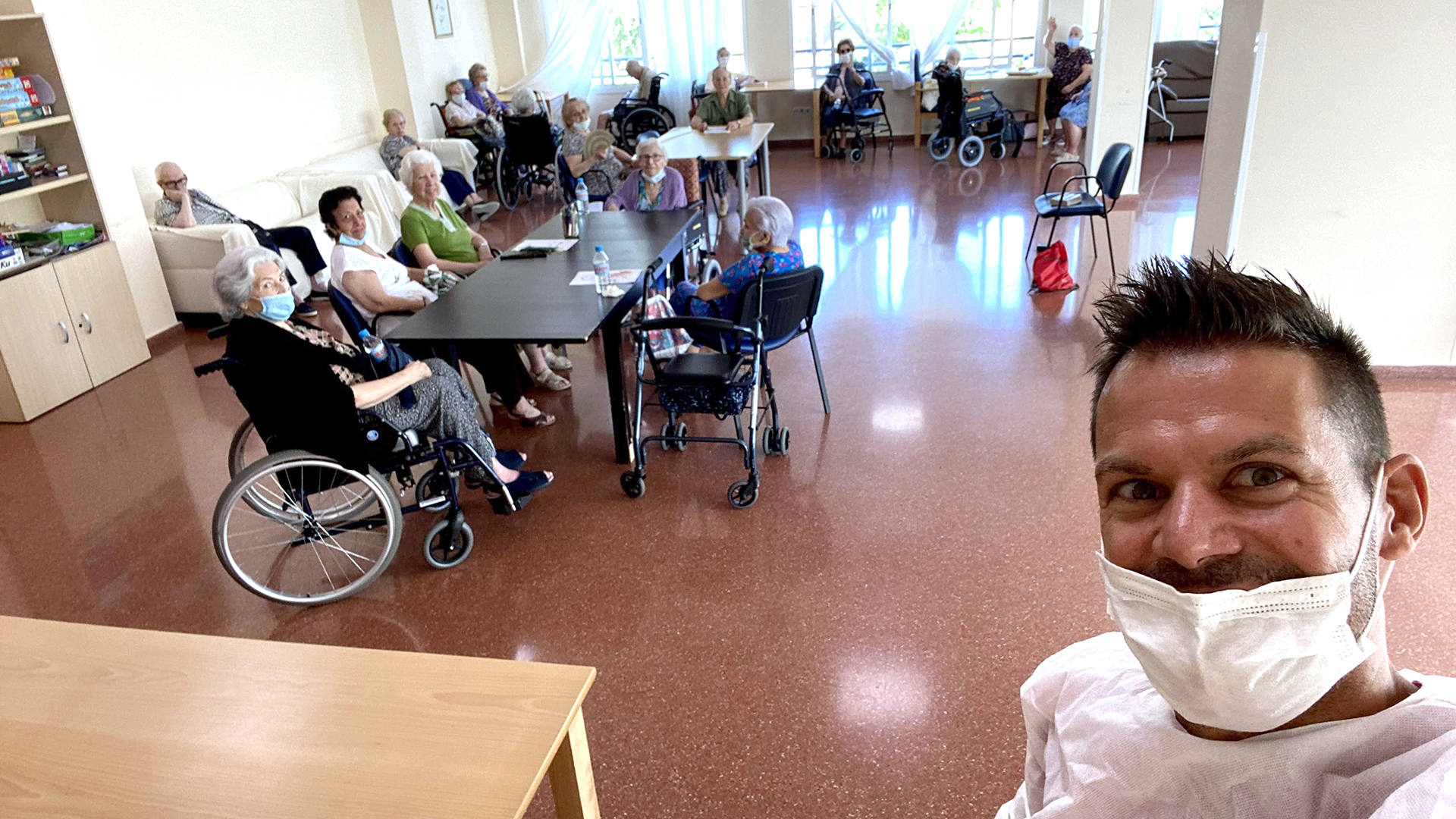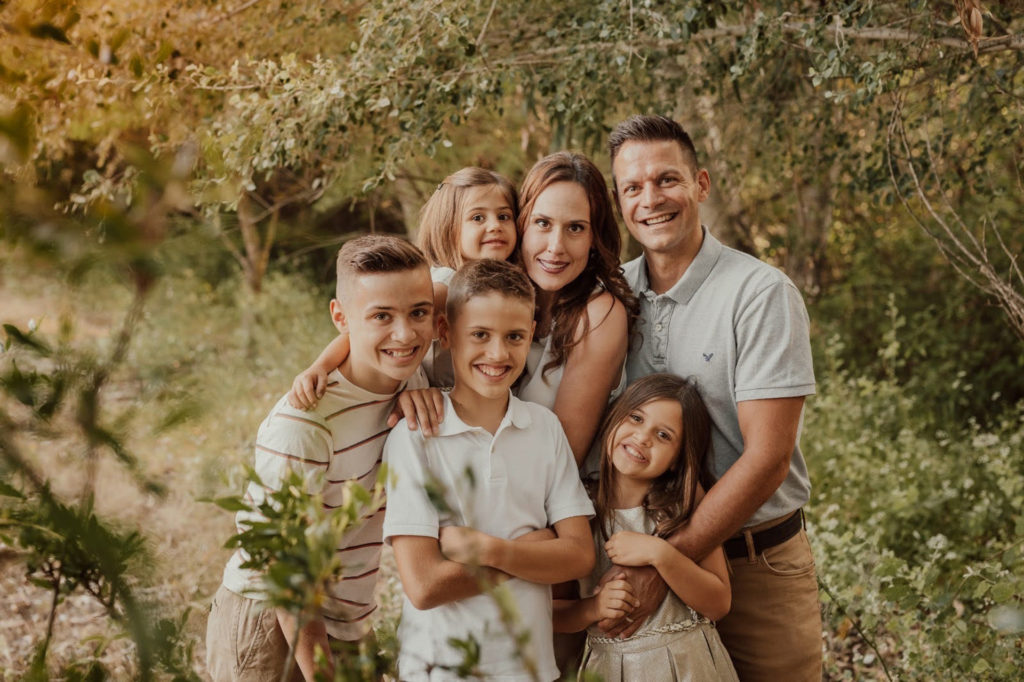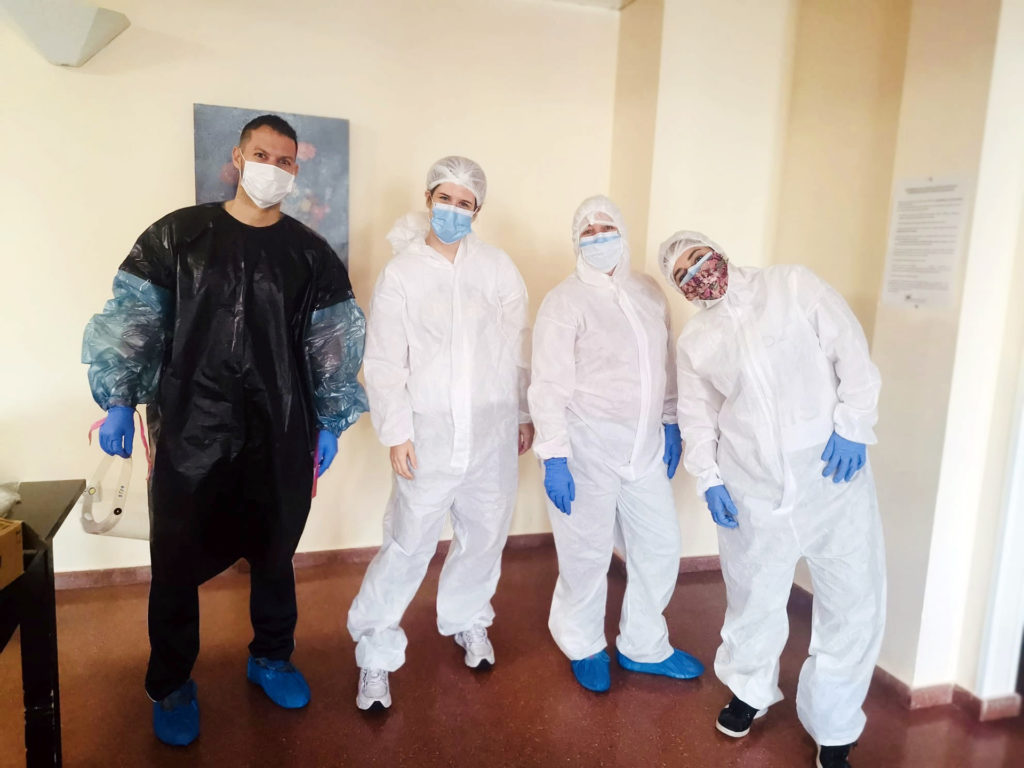Donning full COVID-19 protective gear – two sets of gloves, a mask, a plastic face shield and a hazmat-style jumpsuit – Rusty Ford, a church planter in Seville, Spain, entered a nursing home in crisis during the height of the pandemic in 2020.
He’d spend the better part of the next two months serving in any needed capacity at Joaquín Rosillo nursing home in San Juan de Aznalfarache (Seville). This nursing home was deemed too dangerous for most people to enter.

Each evening as he came home to his wife, Jennifer, and four small children, they’d go to one side of the house while he put his potentially compromised clothes in the wash and showered before touching them.
By April 2020, nearly 80 residents of this home had been diagnosed with COVID. Twenty-four of the residents died due to complications from the disease.
Spain was under lockdown, as panic ensued. At this point, no one knew how the virus was spreading or much about it at all. As the country remained locked down for a total of six weeks, with people not being allowed out of their homes except for trips to the hospital, pharmacy, or grocery store, Ford knew he had to do something.
After going through the red tape to be allowed into this underserved facility, he was granted access.
In the nursing home, he did a little bit of everything, he explained.

Rusty and Jennifer Ford, church planters in Seville, Spain, with their children. During the height of the pandemic, the entire family found ways to serve their community using “creative boldness.” In addition to Rusty going into a nursing home and serving in any capacity, the family also got permission from the police patrolling the streets to deliver cookies and a card that presented the gospel to neighbors who hadn’t had much contact with other people for weeks.
“I’d go into rooms and I’d help clean people. I’d help feed people. Basically, whatever needed to be taken care of, I was there to do,” Ford said.
Many of these elderly people already had limited mobility. In the state of lockdown they were in the first few weeks of his time in the facility, they weren’t allowed to move from room to room for meals or socialization. Residents were isolated.
But, in Ford’s capacity as a volunteer, he was able to go into the rooms and visit with the residents. In a country that is less than 1% evangelical Christian, it was crucial to offer some form of hope in the height of the crisis.
“I was getting chances to pray with people, because, people are talking now,” he said. “Everybody I was dealing with has basically never heard the gospel. And I was also getting a chance to share the gospel with some of the coworkers.”
IMB president, Paul Chitwood, remarked, “Rusty is but one among more than 3,600 IMB missionaries who have continued to share the gospel around the world in the midst of a global pandemic. With literally thousands of short-term mission trips cancelled over the past 18 months, Southern Baptists have not been left without a witness among the nations. The risks and challenges our missionaries continue to face in light of COVID-19 are enormous, but they remain hard at work.”
Eventually, the residents of the nursing home where Ford volunteered were allowed out of their rooms, socially distanced. The volunteer/intern manager approached Ford one day with an idea.
“Rusty, you’re a priest, right?” he asked. Since the country is predominantly Catholic, the idea of a pastor wasn’t familiar.
“More or less,” Ford answered. When the man asked Ford if he wanted to hold religious services, he jumped at the opportunity.
Within 20 minutes of the man asking Ford to speak to the residents, he was sharing the hope of the gospel with 12 residents before their exercise class.
“There was a ton of hopelessness because they’ve seen 24 of their friends die, and lots of people were sick,” Ford said. “I got a chance to share the gospel with around ten or 15 people.”

Rusty Ford, in full COVID-19 protective gear, with colleagues at Joaquín Rosillo nursing home in San Juan de Aznalfarache (Seville).
After that first time, they decided to make the service a weekly thing. Every Monday at 10 a.m., he shared the love of Christ with the residents. The group grew to an average of 25 or 30. Of those, Ford could only identify one woman who was believer.
Eventually, his (or other volunteers) being inside the facility became too much of a liability for the facility, so the ministry ended.
Ford was thankful for the time serving in the nursing home, despite the risks involved.
He was thankful to simply get out of the house, he joked, since being on lockdown in a townhouse with four small kids wasn’t easy.
He was thankful for the opportunity to share the gospel, weekly, with 25-30 people who didn’t know Christ.
But he was also thankful for the chance it gave him to expand his ministry out of the ordinary.
“Typically, in our strategy [as church planters] we wouldn’t focus on nursing home residents,” he explained. “It’s totally outside of the box of our normal ministry.”
But he was glad to intentionally share Christ’s love and hope where he wouldn’t have been under normal circumstances.

